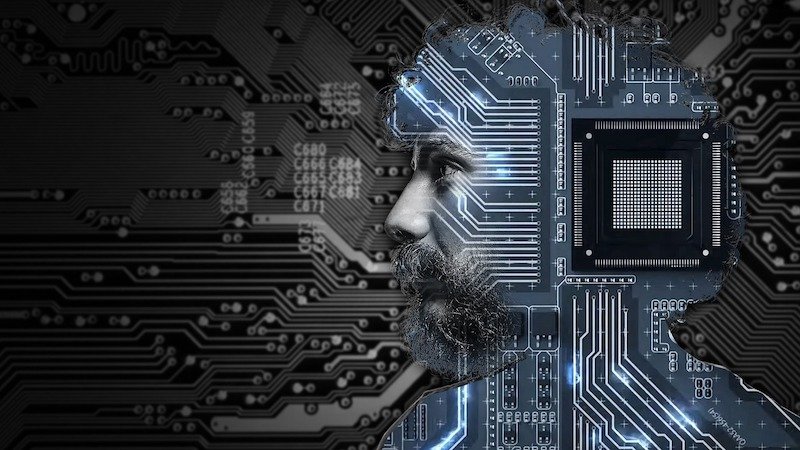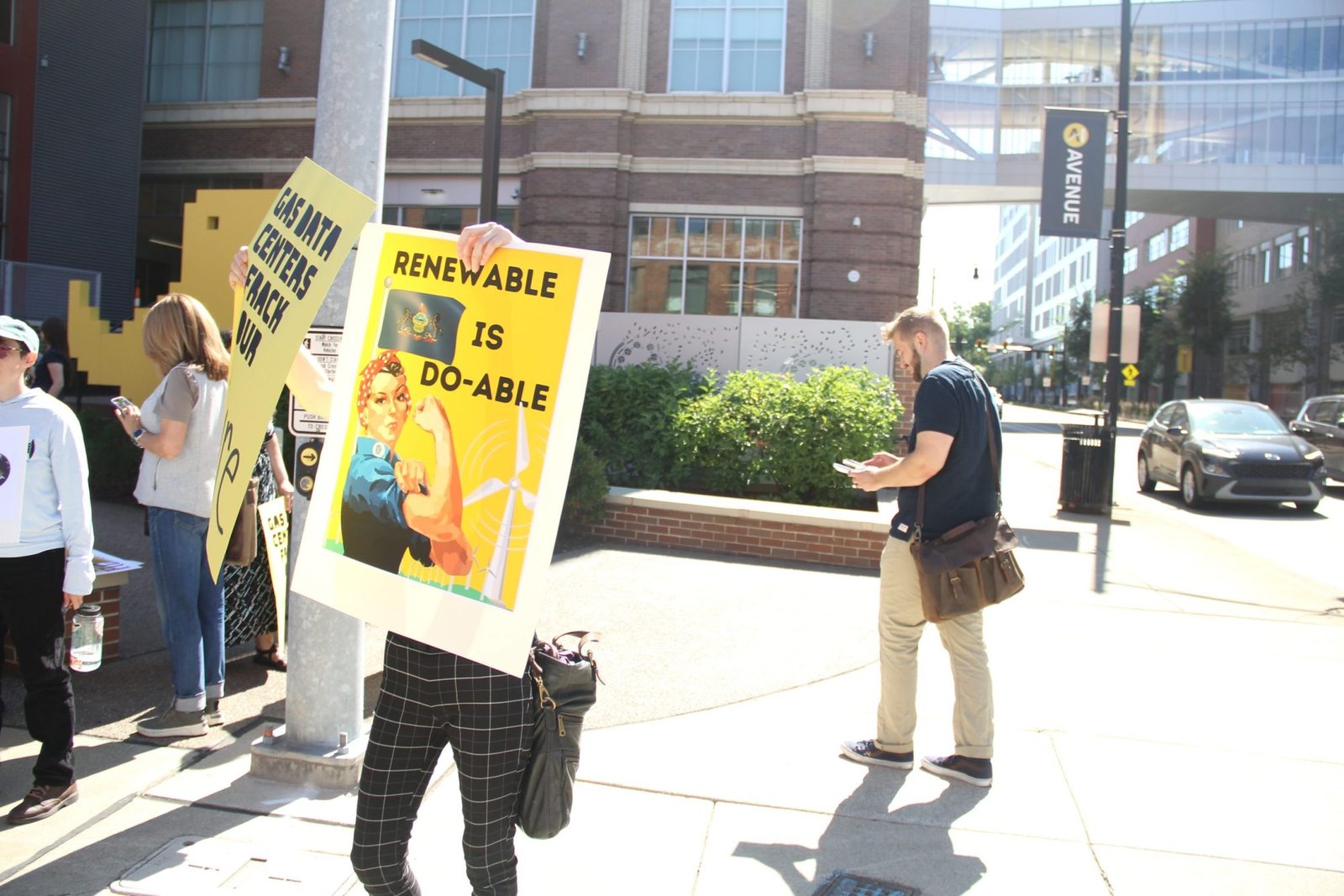AI Insights
The Cognitive Cost Of AI-Assisted Learning – Analysis – Eurasia Review

A decade ago, if someone had claimed machines would soon draft essays, debug code, and explain complex theories in seconds, the idea might have sounded like science fiction. Today, artificial intelligence is doing all of this and more. Large Language Models (LLMs) like ChatGPT have transformed how information is consumed, processed, and reproduced. But as the world becomes more comfortable outsourcing intellectual labor, serious questions are emerging about what this means for human cognition.
It isn’t a doomsday scenario, at least not yet. But mounting research suggests there may be cognitive consequences to the growing dependence on AI tools, particularly in academic and intellectual spaces. The concern isn’t that these tools are inherently harmful, but rather that they change the mental labor required to learn, think, and remember. When answers are pre-packaged and polished, the effort that usually goes into connecting ideas, analyzing possibilities, or struggling through uncertainty may quietly fade away.
A recent study conducted by researchers at the MIT Media Lab helps illustrate this. Fifty-four college students were asked to write short essays under three conditions: using only their brains, using the internet without AI, or using ChatGPT freely. Participants wore EEG headsets to monitor brain activity. The results were striking. Those who relied on their own cognition or basic online searches showed higher brain connectivity in regions tied to attention, memory retrieval, and creativity. In contrast, those who used ChatGPT showed reduced neural activity. Even more concerning: these same students often struggled to recall what they had written.
This finding echoes a deeper pattern. In “The Shallows: What the Internet Is Doing to Our Brains,” Nicholas Carr argues that technologies designed to simplify access to information can also erode our ability to engage deeply with that information. Carr’s thesis, originally framed around search engines and social media, gains renewed relevance in an era where even thinking can be automated.
AI tools have democratized knowledge, no doubt. A student confused by a math problem or an executive drafting a report can now receive tailored, well-articulated responses in moments. But this ease may come at the cost of originality. According to the same MIT study, responses generated with the help of LLMs tended to converge around generic answers. When asked subjective questions like “What does happiness look like?”, essays often landed in a narrow band of bland, agreeable sentiment. It’s not hard to see why: LLMs are trained to produce outputs that reflect the statistical average of billions of human texts.
This trend toward homogenization poses philosophical as well as cognitive challenges. In “The Age of Surveillance Capitalism,” Shoshana Zuboff warns that as technology becomes more capable of predicting human behavior, it also exerts influence over it. If the answers generated by AI reflect the statistical mean, then users may increasingly absorb, adopt, and regurgitate those same answers, reinforcing the very patterns that machines predict.
The concern isn’t just about bland writing or mediocre ideas. It’s about losing the friction that makes learning meaningful. In “Make It Stick: The Science of Successful Learning,” Brown, Roediger, and McDaniel emphasize that learning happens most effectively when it involves effort, retrieval, and struggle. When a student bypasses the challenge and lets a machine produce the answer, the brain misses out on the very processes that cement understanding.
That doesn’t mean AI is always a cognitive dead-end. Used wisely, it can be a powerful amplifier. The same MIT study found that participants who first engaged with a prompt using their own thinking and later used AI to enhance their responses actually showed higher neural connectivity than those who only used AI. In short, starting with your brain and then inviting AI to the table might be a productive partnership. Starting with AI and skipping the thinking altogether is where the danger lies.
Historically, humans have always offloaded certain cognitive tasks to tools. In “Cognition in the Wild,” Edwin Hutchins shows how navigation in the Navy is a collective, tool-mediated process that extends individual cognition across people and systems. Writing, calculators, calendars, even GPS—these are all examples of external aids that relieve our mental burden. But LLMs are different in kind. They don’t just hold information or perform calculations; they construct thoughts, arguments, and narratives—the very outputs we once considered evidence of human intellect.
The worry becomes more acute in educational settings. A Harvard study published earlier this year found that while generative AI made workers feel more productive, it also left them less motivated. This emotional disengagement is subtle, but significant. If students begin to feel they no longer own their ideas or creations, motivation to learn may gradually erode. In “Deep Work,” Cal Newport discusses how focus and effort are central to intellectual development. Outsourcing too much of that effort risks undermining not just skills, but confidence and identity.
Cognitive offloading isn’t new, but the scale and intimacy of AI assistance is unprecedented. Carnegie Mellon researchers recently described how relying on AI tools for decision-making can leave minds “atrophied and unprepared.” Their concern wasn’t that these tools fail, but that they work too well. The smoother the experience, the fewer opportunities the brain has to engage. Over time, this could dull the mental sharpness that comes from grappling with ambiguity or constructing arguments from scratch.
Of course, there’s nuance. Not all AI use is equal, and not all users will be affected in the same way. A senior using a digital assistant to remember appointments is not the same as a student using ChatGPT to write a philosophy paper. As “Digital Minimalism” by Cal Newport suggests, it’s not the presence of technology, but the purpose and structure of its use that determines its impact.
Some might argue that concerns about brain rot echo earlier panics. People once feared that writing would erode memory, that newspapers would stunt critical thinking, or that television would replace reading altogether. And yet, society adapted. But the difference now lies in the depth of substitution. Where earlier technologies altered the way information was delivered, LLMs risk altering the way ideas are born.
The road forward is not to abandon AI, but to treat it with caution. Educators, researchers, and developers need to think seriously about how these tools are integrated into daily life, especially in formative contexts. Transparency, guided usage, and perhaps even deliberate “AI-free zones” in education could help preserve the mental muscles that matter.
In the end, the question is not whether AI will shape how people think. It already is. The better question is whether those changes will leave future generations sharper, or simply more efficient at being average.
References
- Carr, N. (2010). The Shallows: What the Internet Is Doing to Our Brains. W.W. Norton.
- Zuboff, S. (2019). The Age of Surveillance Capitalism. PublicAffairs.
- Brown, P.C., Roediger, H.L., & McDaniel, M.A. (2014). Make It Stick: The Science of Successful Learning. Belknap Press.
- Hutchins, E. (1995). Cognition in the Wild. MIT Press.
- Newport, C. (2016). Deep Work: Rules for Focused Success in a Distracted World. Grand Central.
- Newport, C. (2019). Digital Minimalism: Choosing a Focused Life in a Noisy World. Portfolio.
- Daugherty, P. R., & Wilson, H. J. (2018). Human + Machine: Reimagining Work in the Age of AI. Harvard Business Review Press.
AI Insights
Pittsburgh’s AI summit: five key takeaways

The push for artificial intelligence-related investments in Western Pennsylvania continued Thursday with a second conference that brought together business leaders and elected officials.
Not in attendance this time was President Donald Trump, who headlined a July 15 celebration of AI opportunity at Carnegie Mellon University.
This time Gov. Josh Shapiro, U.S. Sen. David McCormick and others converged in Bakery Square in Larimer to emphasize emerging public-private initiatives in anticipation of growing data center development and other artificial intelligence-related infrastructure including power plants.
Here’s what speakers and attendees at the summit were saying.
AI is not a fad
As regional leaders and business investors consider their options, BNY Mellon’s CEO Robin Vince cautioned against not taking AI seriously.
“The way to get left behind in the next 10 years is to not care about AI,” Vince said
“AI is transforming everything,” said Selin Song during Thursday’s event. As president of Google Customer Solutions, Song said that the company’s recent investment of $25 million across the Pennsylvania-Jersey-Maryland grid will help give AI training access to the more than 1 million small businesses in the state.
Google isn’t the only game in town
Shapiro noted that Amazon recently announced plans to spend at least $20 billion to establish multiple high-tech cloud computing and AI innovation campuses across the state.
“This is a generational change,” Shapiro said, calling it the largest private sector investment in Pennsylvania’s history. “This is our next chapter in innovative growth. It all fits together. This new investment is beyond data center 1.0 that we saw in Virginia.”
Fracking concerns elevated
With all of the plans for new power-hungry data centers, some are concerned that the AI push will create more environmental destruction. Outside the summit, Food & Water Watch Pennsylvania cautioned that the interest in AI development is a “Trojan horse” for more natural gas fracking. Amid President Donald Trump’s attempts to dismantle wind and solar power, alternatives to natural gas appear limited.
Nuclear ready for its moment
But one possible alternative was raised at the AI conference by Westinghouse Electric Company’s interim CEO Dan Summer.
The Pittsburgh-headquartered organization is leading a renewed interest in nuclear energy with plans to build a number of its AP 1000 reactors to help match energy needs and capabilities.
Summer said that the company is partnering with Google, allowing them to leverage Google’s AI capabilities “with our nuclear operations to construct new nuclear here.”
China vs. ‘heroes’
Underlying much of the AI activity: concerns with China’s work in this field
“With its vast resources, enormous capital, energy, workforce, the Chinese government is leveraging its resources to beat the United States in AI development,” said Nazak Nikakhtar, a national security and international trade attorney who chaired one of the panels Thursday.

Speaking to EQT’s CEO Toby Rice and Groq executive Ian Andrews, Nikakhtar outlined some of the challenges she saw in U.S. development of AI technology compared to China.
“We are attempting to leverage, now, our own resources, albeit in some respects much more limited vis-a-vis what China has, to accelerate AI leadership here in the United States and beat China,” she said. “But we’re somewhat constrained by the resources we have, by our population, by workforce, capital.”
Rice said in response that the natural resources his company is extracting will help power the country’s ability to compete with China.
Rice drew a link between the 9/11 terror attacks 24 years earlier and the “urgency” of competing with China in AI.
“People are looking to take down American economies,” Rice said. “And we have heroes. Never forget. And I do believe that us winning this race against China in AI is going to be one of the most heroic things we’re going to do.”
Eric Jankiewicz is PublicSource’s economic development reporter and can be reached at ericj@publicsource.org or on Twitter @ericjankiewicz.
AI Insights
Commanders vs. Packers props, SportsLine Machine Learning Model AI picks, bets: Jordan Love Over 223.5 yards

The NFL Week 2 schedule gets underway with a Thursday Night Football matchup between NFC playoff teams from a year ago. The Washington Commanders battle the Green Bay Packers beginning at 8:15 p.m. ET from Lambeau Field. Second-year quarterback Jayden Daniels led the Commanders to a 21-6 opening-day win over the New York Giants, completing 19 of 30 passes for 233 yards and one touchdown. Jordan Love, meanwhile, helped propel the Packers to a dominating 27-13 win over the Detroit Lions in Week 1. He completed 16 of 22 passes for 188 yards and two touchdowns.
NFL prop bettors will likely target the two young quarterbacks with NFL prop picks, in addition to proven playmakers like Deebo Samuel, Romeo Doubs and Zach Ertz. Green Bay’s Jayden Reed has been dealing with a foot injury, but still managed to haul in a touchdown pass in the opener, while Austin Ekeler (shoulder) does not carry an injury designation for TNF. The Packers enter as a 3-point favorite with Green Bay at -172 on the money line, while the over/under is 49 points. Before betting any Commanders vs. Packers props for Thursday Night Football, you need to see the Commanders vs. Packers prop predictions powered by SportsLine’s Machine Learning Model AI.
Built using cutting-edge artificial intelligence and machine learning techniques by SportsLine’s Data Science team, AI Predictions and AI Ratings are generated for each player prop.
For Packers vs. Commanders NFL betting on Monday Night Football, the Machine Learning Model has evaluated the NFL player prop odds and provided Commanders vs. Packers prop picks. You can only see the Machine Learning Model player prop predictions for Washington vs. Green Bay here.
Top NFL player prop bets for Commanders vs. Packers
After analyzing the Commanders vs. Packers props and examining the dozens of NFL player prop markets, the SportsLine’s Machine Learning Model says Packers quarterback Love goes Over 223.5 passing yards (-112 at FanDuel). Love passed for 224 or more yards in eight games a year ago, despite an injury-filled season. In 15 regular-season games in 2024, he completed 63.1% of his passes for 3,389 yards and 25 touchdowns with 11 interceptions. Additionally, Washington allowed an average of 240.3 passing yards per game on the road last season.
In a 30-13 win over the Seattle Seahawks on Dec. 15, he completed 20 of 27 passes for 229 yards and two touchdowns. Love completed 21 of 28 passes for 274 yards and two scores in a 30-17 victory over the Miami Dolphins on Nov. 28. The model projects Love to pass for 259.5 yards, giving this prop bet a 4.5 rating out of 5. See more NFL props here, and new users can also target the FanDuel promo code, which offers new users $300 in bonus bets if their first $5 bet wins:
How to make NFL player prop bets for Washington vs. Green Bay
In addition, the SportsLine Machine Learning Model says another star sails past his total and has nine additional NFL props that are rated four stars or better. You need to see the Machine Learning Model analysis before making any Commanders vs. Packers prop bets for Thursday Night Football.
Which Commanders vs. Packers prop bets should you target for Thursday Night Football? Visit SportsLine now to see the top Commanders vs. Packers props, all from the SportsLine Machine Learning Model.
AI Insights
Adobe Says Its AI Sales Are Coming in Strong. But Will It Lift the Stock?

Adobe (ADBE) just reported record quarterly revenue driven by artificial intelligence gains. Will it revive confidence in the stock?
The creative software giant late Thursday posted adjusted earnings per share of $5.31 on revenue that jumped 11% year-over-year to a record $5.99 billion in the fiscal third quarter, above analysts’ estimates compiled by Visible Alpha, as AI revenues topped company targets.
CEO Shantanu Narayen said that with the third-quarter’s revenue driven by AI, Adobe has already surpassed its “AI-first” revenue goals for the year, leading the company to boost its outlook. The company said it now anticipates full-year adjusted earnings of $20.80 to $20.85 per share and revenue of $23.65 billion to $23.7 billion, up from adjusted earnings of $20.50 to $20.70 on revenue of $23.50 billion to $23.6 billion previously.
Shares of Adobe were recently rising in late trading. But they’ve had a tough year so far, with the stock down more than 20% for 2025 through Thursday’s close amid worries about the company’s AI progress and growing competition.
Wall Street is optimistic. The shares finished Thursday a bit below $351, and the mean price target as tracked by Visible Alpha, above $461, represents a more than 30% premium. Most of the analysts tracking the stock have “buy” ratings.
But even that target represents a degree of caution in the context of recent highs. The shares were above $600 in February 2024.
-

 Business2 weeks ago
Business2 weeks agoThe Guardian view on Trump and the Fed: independence is no substitute for accountability | Editorial
-
Tools & Platforms1 month ago
Building Trust in Military AI Starts with Opening the Black Box – War on the Rocks
-

 Ethics & Policy2 months ago
Ethics & Policy2 months agoSDAIA Supports Saudi Arabia’s Leadership in Shaping Global AI Ethics, Policy, and Research – وكالة الأنباء السعودية
-

 Events & Conferences4 months ago
Events & Conferences4 months agoJourney to 1000 models: Scaling Instagram’s recommendation system
-

 Jobs & Careers2 months ago
Jobs & Careers2 months agoMumbai-based Perplexity Alternative Has 60k+ Users Without Funding
-

 Podcasts & Talks2 months ago
Podcasts & Talks2 months agoHappy 4th of July! 🎆 Made with Veo 3 in Gemini
-

 Education2 months ago
Education2 months agoVEX Robotics launches AI-powered classroom robotics system
-

 Education2 months ago
Education2 months agoMacron says UK and France have duty to tackle illegal migration ‘with humanity, solidarity and firmness’ – UK politics live | Politics
-

 Funding & Business2 months ago
Funding & Business2 months agoKayak and Expedia race to build AI travel agents that turn social posts into itineraries
-

 Podcasts & Talks2 months ago
Podcasts & Talks2 months agoOpenAI 🤝 @teamganassi

